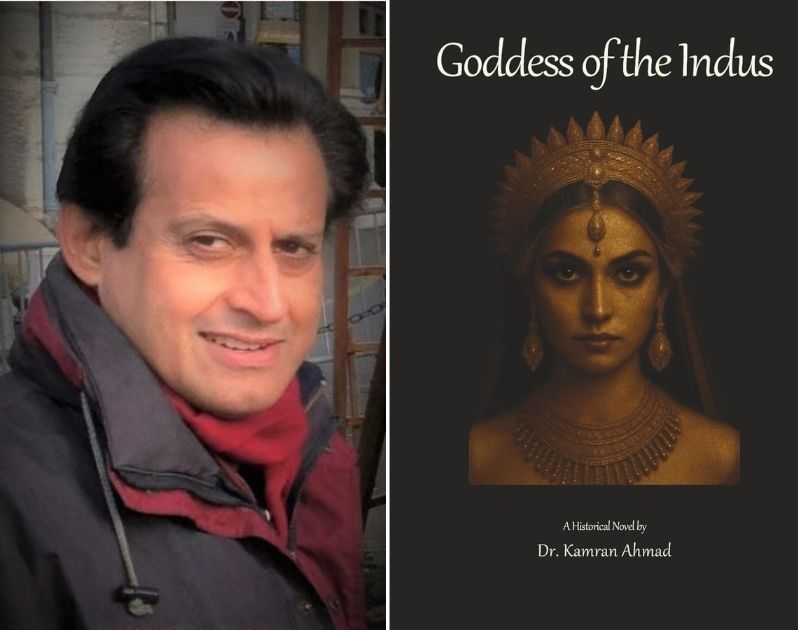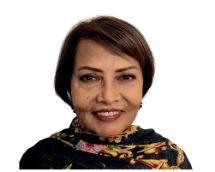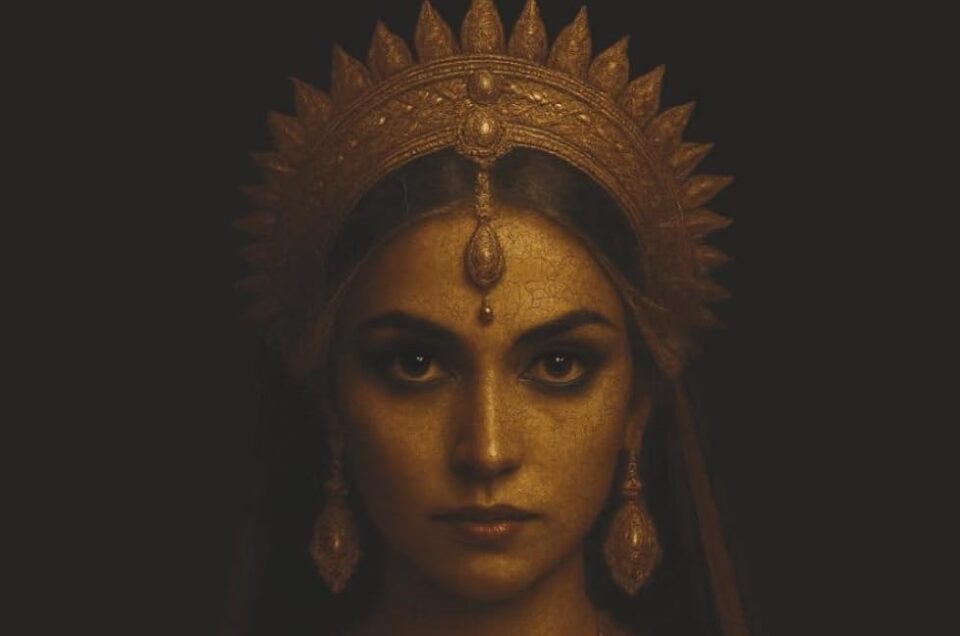BY DR. QAISER MUKHTAR*
Authored by Dr. Kamran Ahmad, ‘Goddess of the Indus’ is a powerful historical novel that explores the forgotten world of the Indus Valley and challenges modern perceptions of South Asian history. Delving into themes of gender, sacred sexuality, and spiritual resistance, it offers a thought-provoking journey for South Asian diaspora audiences.
As a woman seeking stories that honor our strength and resilience, this novel felt like a revelation. From the first chapter, I was immersed in the Indus Valley—not as an archaeological site, but as a living civilization where women’s voices, struggles, and spiritual power were central.
Dr. Ahmad invites readers into a world where the feminine divine played a key role, spirituality was connected to nature, and society was shaped by reverence rather than hierarchy. Set 3,200 years ago, this novel serves as a reclamation of ancestral memory.

The story follows Syam, a gifted artisan, and his mother Meheraani, the living embodiment of the Mother Goddess of Ambikshala… a hidden sanctuary devoted to goddess spirituality and ancient South Asian traditions. Following a painful separation, they journey through love, betrayal, and revelation, guided by sages and threatened by forces that seek to reshape the sacred into hierarchy and control.
Through vividly imagined scenes, the author illustrates the tension between indigenous traditions and the rise of patriarchal systems. The exploration of gender, sacred sexuality, and spiritual resistance provides insight into cultural erasure and its potential reversal.
For the South Asian diaspora, the Goddess of the Indus addresses questions of identity, belonging, and cultural continuity. Ahmad’s portrayal of pre-Vedic goddess traditions and racial hierarchies urges readers to reconsider their inherited narratives, stimulating intellectual curiosity.
The Goddess of the Indus is a timeless figure—older than borders —representing unity that transcends the divisions between India, Pakistan, and Bangladesh. She symbolizes our shared ancestry, collective memory, and intertwined roots, reminding us that belonging came before division.
In an age of fragmented identities, Goddess of the Indus offers a cultural anchor, reminding readers that South Asian heritage is defined not just by colonial legacies or modern migrations, but by ancient traditions of reverence for the earth, the feminine, and the sacred. For readers in Atlanta and beyond, this novel serves as a bridge between past and present, fostering a strong sense of connection to one’s heritage.
Goddess of the Indus is a significant addition to South Asian historical fiction, inviting reflection on the continuity of cultural memory and the importance of reclaiming narratives that celebrate resilience and inclusiveness. This book encourages readers to reflect on their own cultural heritage.
Dr. Ahmad’s decades of spiritual exploration and academic expertise in South Asian traditions lend authenticity to the narrative, resonating with those seeking to reconnect with ancestral wisdom. His first novel avoids academic detachment, weaving a scene-driven narrative that brings characters to life with timeless conflicts and deep human emotions.
Where to Order
This book is available in multiple formats on Amazon.com: Goddess of the Indus: A Historical Novel (9798274141833) by Dr. Kamran Ahmad.More details about this book, the author, and his work can be found at Goddess of the Indus.

Dr. Qaiser Mukhtar is a recently retired CDC scientist who built a distinguished career in cardiovascular epidemiology and scientific communication, strengthening global capacity to address noncommunicable diseases and improve public health messaging. In retirement, she channels her passion into creative writing, crafting short stories and poetry in both English and Urdu. Her work explores themes of resilience, identity, and hope, reflecting her lifelong commitment to clarity and empathy. In 2025, she participated in 100 Thousand Poets for Change, bridging analytical insight with poetic imagination to inspire thoughtful, cross-cultural dialogue.



